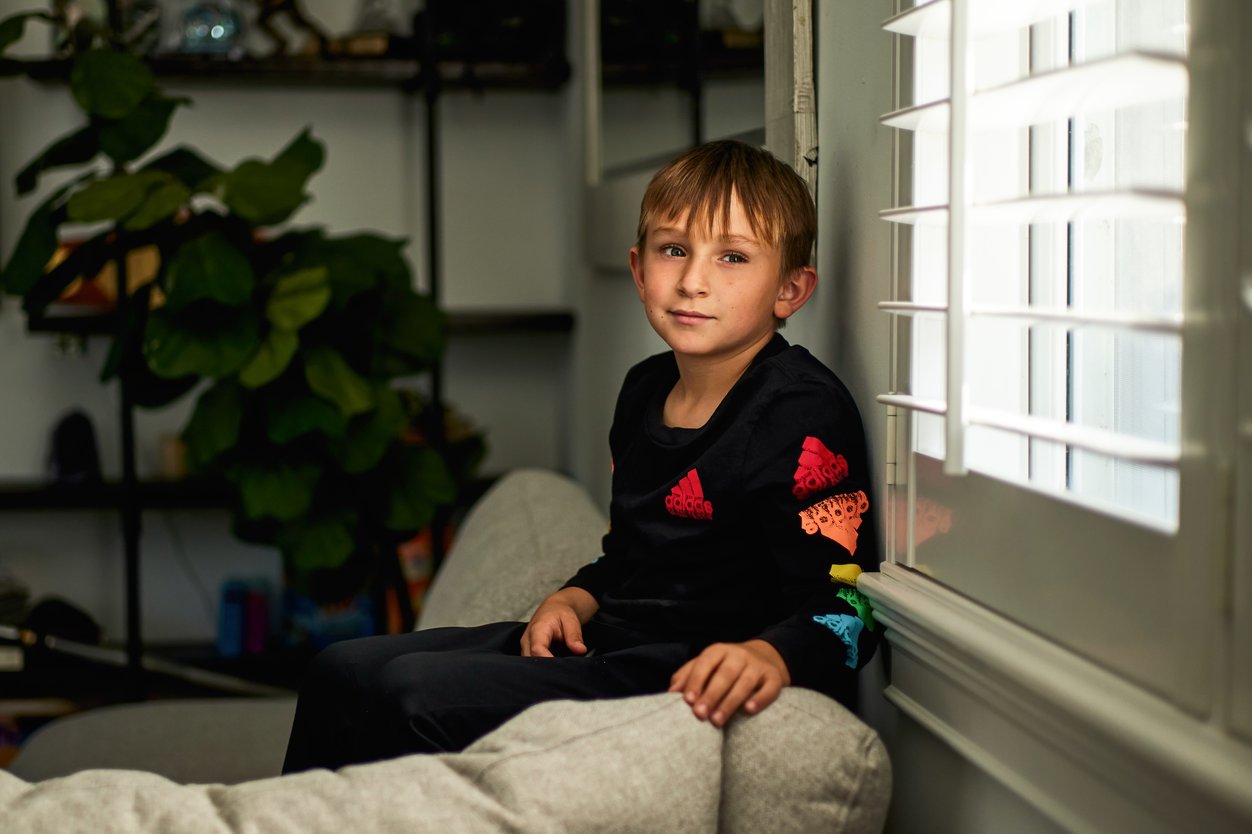closer look
When precision medicine isn't enough, this is next

Scott McIntyre for STAT
Logan Jenner (above) was diagnosed at age 3 with acute myeloid leukemia, with a mutation targeted by a precision therapy drug. Then, just as he was getting ready to undergo a bone marrow transplant, his younger sister was born in time to be the perfect matched donor. He relapsed a year and a half later. "Now what?" his father asked. Precision medicine wasn't enough for him, so doctors turned to the next thing: a new approach called functional precision medicine, powered by single-cell analytical techniques and lab automation.
Functional precision medicine trials done in Europe have begun yielding positive data in adults, and a new study in Nature Medicine today suggests the approach may help children, too. Five of six patients who received the guided approach had their cancers shrink while seven of eight patients who didn't saw their disease progress. The idea combines precision genomic medicine with a brute-force approach: take a sample of the patient's tumor, culture it in the lab, and test its sensitivity to every drug you can think of. STAT's Angus Chen has more on the process and how Logan fared.
covid
Sanders floats $10 billion long Covid 'moonshot'
You've heard of the Cancer Moonshot, launched when President Biden was vice president and then relaunched by his current administration Now Sen. Bernie Sanders (I-Vt.) wants a long Covid moonshot. His draft proposal, released this week, follows a January hearing that highlighted long Covid as a public health crisis. He's asking for a solid $10 billion over 10 years that would be in addition to funding for continuation of the RECOVER trial, often criticized for its glacial pace and questioned for its choice of trials.
As we told you yesterday, about 1 in 10 people report persistent symptoms six months after their Covid infections. "I am heartened that Senator Sanders is treating long Covid as the urgent crisis it is and thrilled that he is directly responding to the community calls" for a moonshot, Lisa McCorkell, co-founder of the Patient-Led Research Collaborative, told STAT's Isabella Cueto in an email. Read more.
health equity
Report calls for including pregnant and lactating patients in research
If researchers conducting clinical trials have been excluding pregnant or lactating participants for fear of legal liability, they're wrong, a new report says, noting that a case law analysis found no claims of liability for injuries resulting from pregnant or lactating women participating in clinical trials since 1962. There have been lawsuits from people hurt by FDA-approved drugs during pregnancy, highlighting what the National Academies of Sciences, Engineering, and Medicine call an urgent need for including pregnant and lactating women in clinical trials, with appropriate safety measures.
To address the dearth of high-quality data on drugs and vaccines that patients, their fetuses, or their children may be exposed to, the report calls on:
- The FDA to develop clearer guidance on including these populations in clinical trials
- Congress to create incentives to encourage their inclusion
- The NIH to develop a plan to prioritize research with these populations across its institutes and centers.


No comments